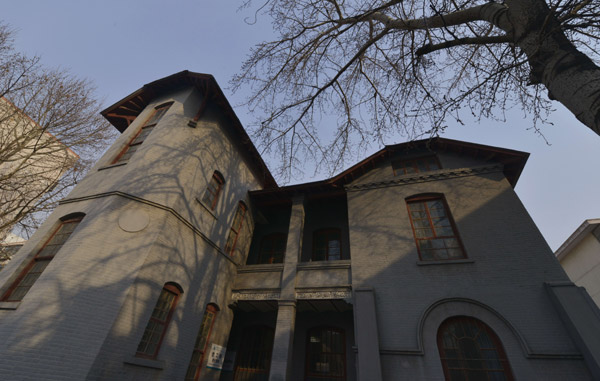 |
|
The Weihsien camp in Shandong province. JU CHUANJIANG/CHINA DAILY |
First person
Wang Hao, director of the Weifang Foreign and Overseas Chinese Affairs Office
Weihsien camp is not only a part of Chinese history, but also a part of US history. I was told that by a former internee from the United States when he revisited the camp in 2005.
The camp's unique history provides a connection with the rest of the world.
This year marks the 70th anniversary of the Allied victory in World War II and the end of the Japanese occupation of China.
A series of memorial activities will be organized, both officially and by civil organizations, to remember those unforgettable days and also to call on all nations to cherish peace.
We have sent invitations to former internees, inviting them to visit Weifang in August. We are delighted that a number of survivors-most of them in their 80s or 90s-h(huán)ave said they will attend if their health permits.
Relatives of some former internees who have passed away have expressed great interest in visiting to see what their forebears experienced.
In the long term, we hope to restore some of the buildings and to make the few that still stand into a camp-themed memorial park.
We are currently repairing seven old buildings, including one shaped like a cross, and they will become part of a new memorial museum for the camp. We need a lot of space because former internees and relatives have donated a huge number of photos and other items. We also plan to restore one or two rooms that were occupied by well-known internees.
The camp has attracted a great deal of interest from Chinese movie directors, and a movie will begin production on June 23. A number of books about the history of Weihsien camp will also be published this year.
WANG HAO SPOKE WITH HE NA.
Estelle Cliff Horne, former internee from the United Kingdom
Twenty-five members of my family-three generations-were interned in China. In addition to those at Weihsien camp in Weifang, Shandong province, some were held in camps in Shanghai, such as my uncle's wife and three children who were in the Lunghua camp.
My uncle, Dixon Hoste, was a journalist and editor. He was interned in the notorious Haiphong Road Camp along with other well-known or important prisoners. The Kempeitai (Japanese military police) regularly took them to Bridge House for interrogation and torture.
I was at a demonstration in London on the occasion of the visit of Emperor Akihito. With the permission of the Queen, we turned our backs on the carriage in which the Emperor was seated. Some wore red gloves to indicate the blood the Japanese had shed.
I lived in China as a child, and have also revisited eight times. I have always felt at home because I lived in walled cities and sandy fields in Shanxi and Henan, and in heavenly Hangzhou, before going to school in beautiful Yantai.
Those of us who grew up in China will always love her and wish her well. We pray every day that she will be blessed.
ESTELLE CLIFF HORNE SPOKE WITH HE NA.